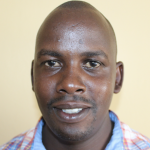Residents in Elutali Village are peasants who survive on small-scale farming, small business enterprises, making bricks, and casual labor to fend for their daily bread.
Elutali Community is special. Although the terrain of the land is hilly, they make good use of the land by planting thick grasses that act as terraces to conserve soil erosion and feed their cattle.
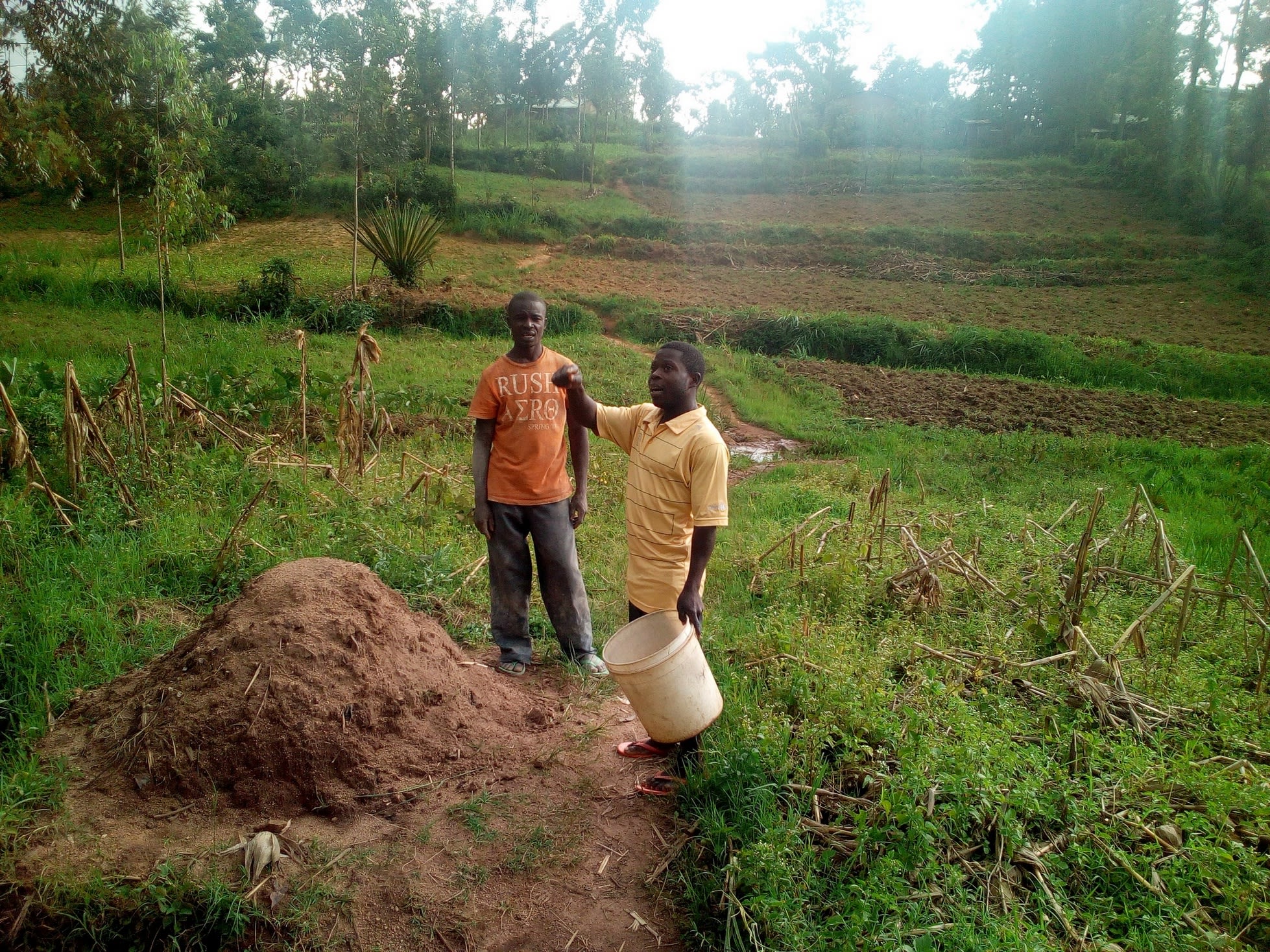
These people, living below the poverty line, are the ones drawing water from unprotected Obati Spring. The spring serves more than 30 households not only for their drinking needs but also for making bricks.
Users come to the open spring with their own containers. They squat and immerse the containers to fetch water and bring it home. The gathered water is then stored in larger pots and barrels.
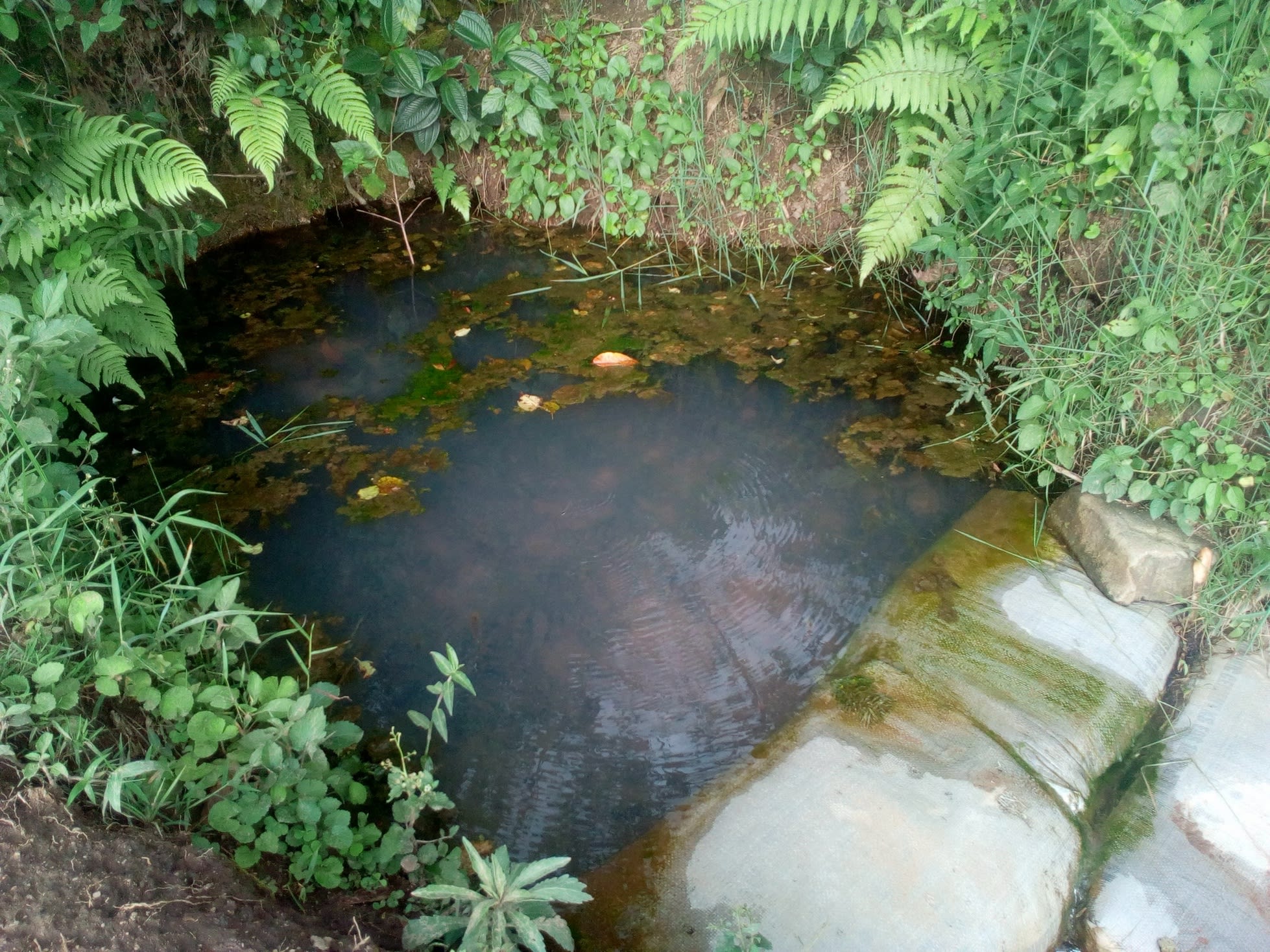
The water source is contaminated. Each and every user pollutes the source by immersing their containers in the water. Also, this water source is open and exposed to agents of contamination, such as runoff water.
Water shortages force the community members to travel long distances in search of clean water. The unsafe source leads to the outbreak of waterborne diseases, making people spend their resources on medication rather than for development.
"The water source as you have seen is an open source that is exposed to contamination. Most of us have suffered from waterborne diseases after consuming this water," Mr. Joseph Shisievo said.
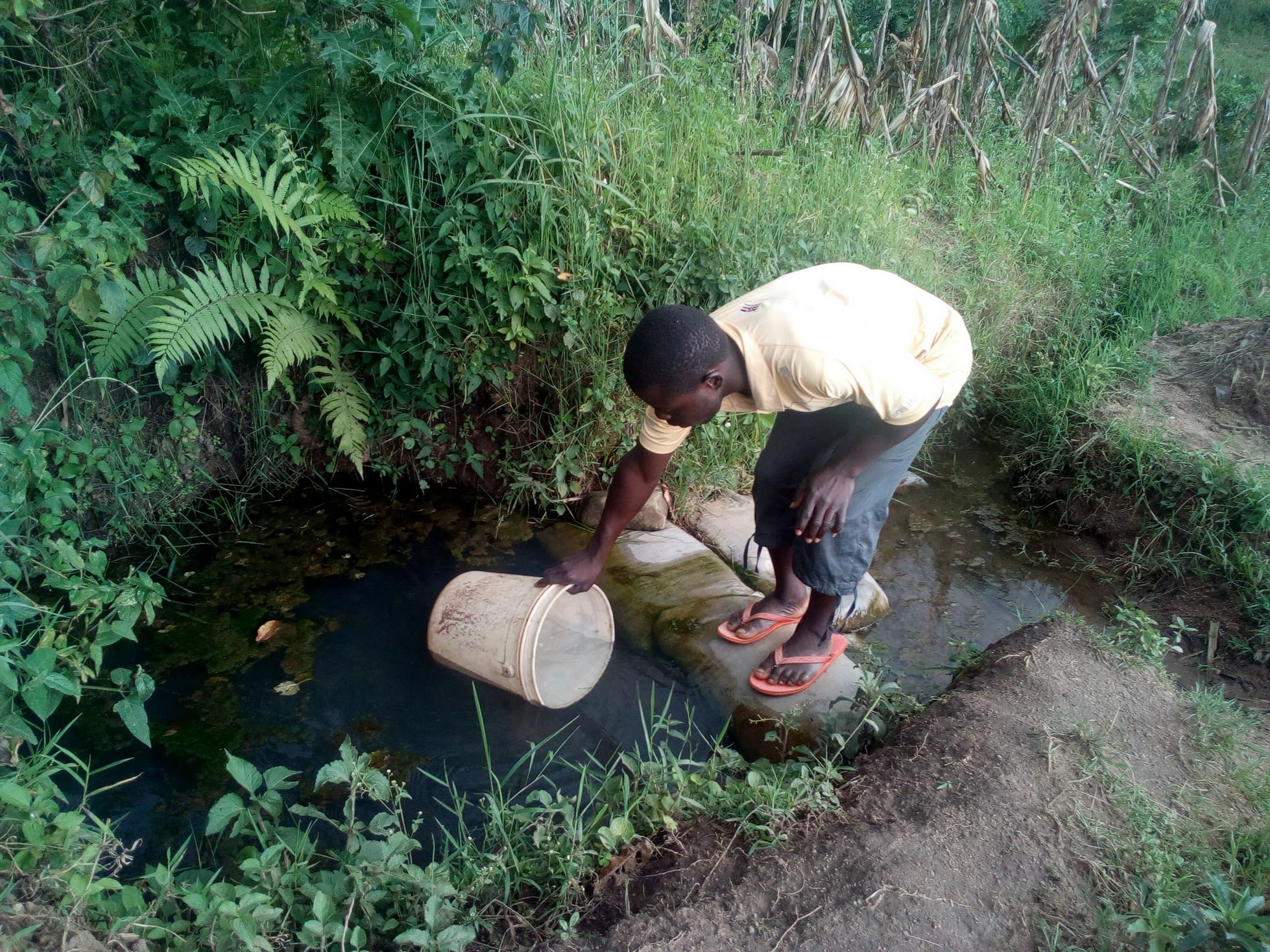
Some middle-class people do have plastic rainwater harvesting tanks while others have wells but their compounds are fenced so that other community members can't get access to their water facilities.
More than half of households have latrines. Most of the pit latrines are made of mud walls, tree log flooring, and roofs with corroded iron sheets. These pit latrines are in a poor structural state, making it risky for users.
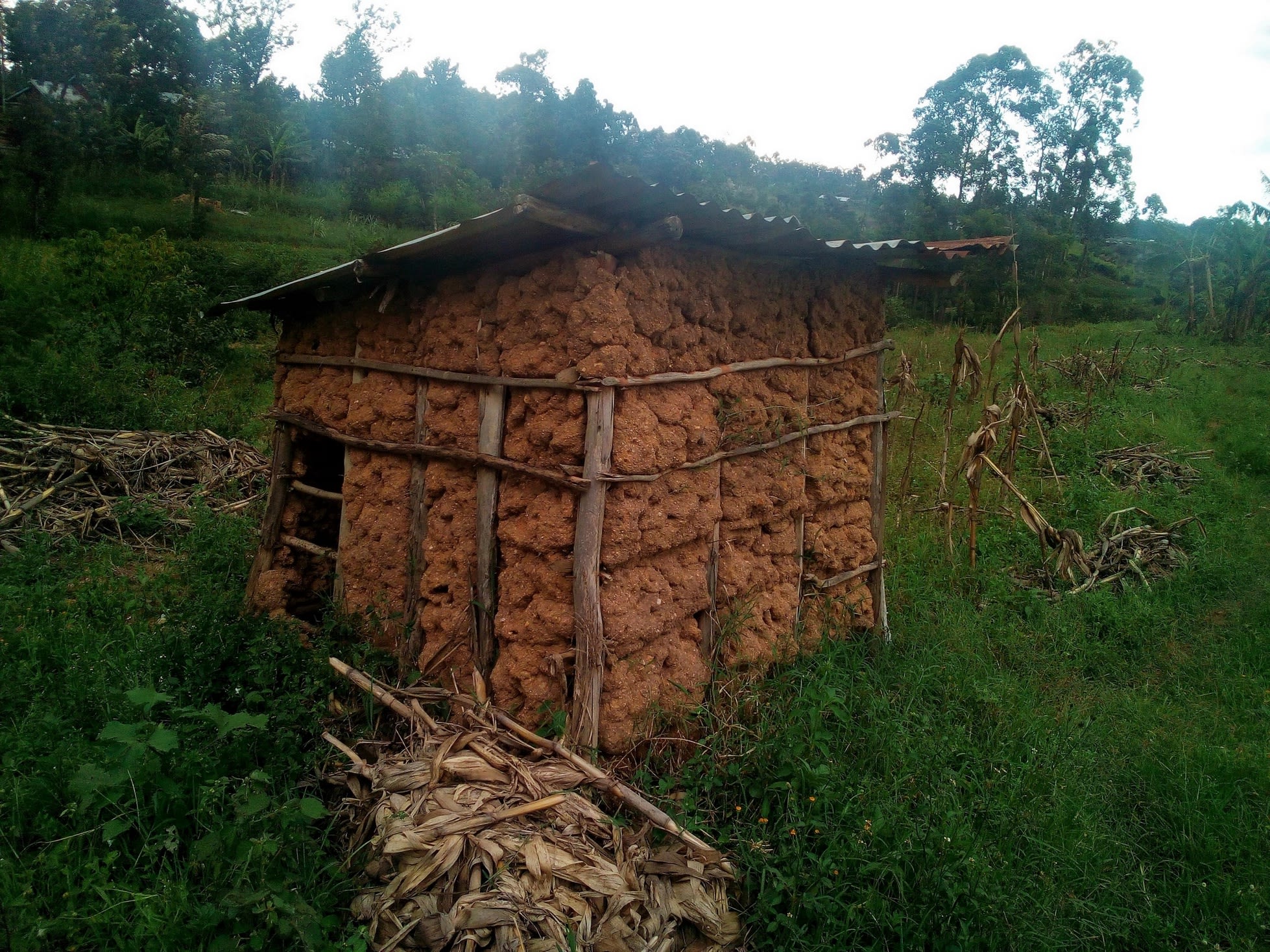
Garbage is collected and disposed of in a compost pit, which is later dug and used as organic manure for their banana plantations.
Protecting Obati Spring will amount to saving lives in Elutali Village.
Here’s what we’re going to do about it:
Training
Community members will attend hygiene and sanitation training for at least two days. This training will ensure participants have the knowledge they need about healthy practices and their importance. The facilitator plans to use PHAST (Participatory Hygiene and Sanitation Transformation), CLTS (Community-Led Total Sanitation), ABCD (Asset-Based Community Development), group discussions, handouts, and demonstrations at the spring. One of the most important topics we plan to cover is the handling, storage, and treatment of water. Having a clean water source will be extremely helpful, but it is useless if water gets contaminated by the time it’s consumed. Handwashing will also be a big topic.
Training will also result in the formation of a committee that will oversee operations and maintenance at the spring. They will enforce proper behavior around the spring and delegate tasks that will help preserve the site, such as building a fence and digging proper drainage. The fence will keep out destructive animals, and the drainage will keep the area’s mosquito population at a minimum.
Sanitation Platforms
On the final day of training, participants will select five families that should benefit from new latrine floors.
Training will also inform the community and selected families on what they need to contribute to make this project a success. They must mobilize locally available materials, such as bricks, clean sand, hardcore, and ballast. The five families chosen for sanitation platforms must prepare by sinking a pit for the sanitation platforms to be placed over. All community members must work together to make sure that accommodations and food are always provided for the work teams.
Spring Protection
Protecting the spring will ensure that the water is safe, adequate and secure. Construction will keep surface runoff and other contaminants out of the water. With the community’s high involvement in the process, there should be a good sense of responsibility and ownership for the new clean water source.
Fetching water is predominantly a female role, done by both women and young girls. Protecting the spring and offering training and support will, therefore, help empower the female members of the community by giving them more time and efforts to engage and invest in income-generating activities.

 Protected Spring
Protected Spring
 Rehabilitation Project
Rehabilitation Project











